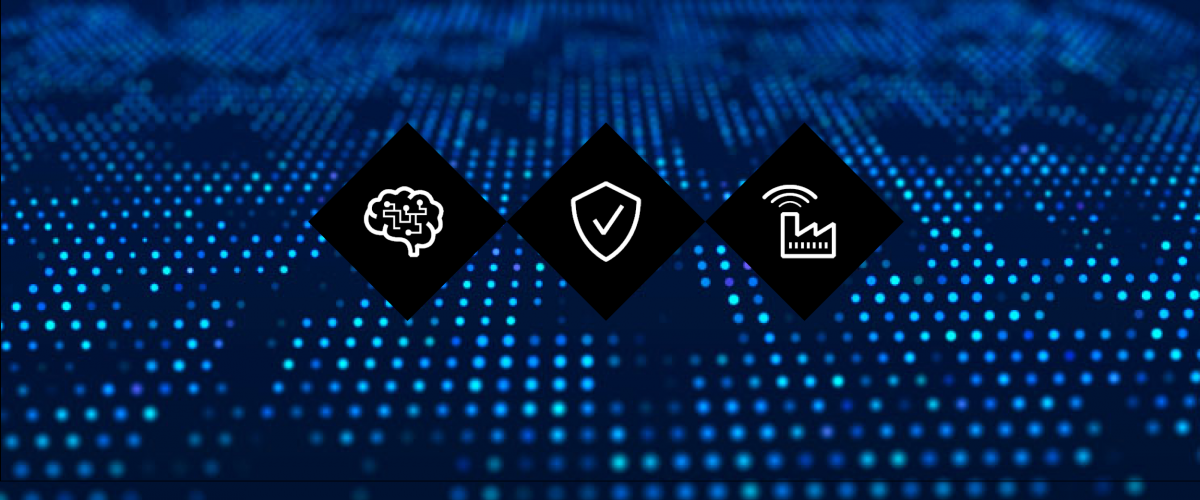In a geopolitical context and global market where artificial intelligence has become an essential strategic lever, companies must adopt sovereign AI to ensure their autonomy and competitiveness. For French industrial SMEs and mid-sized companies, control over infrastructure, algorithms, and data is a major strategic and economic challenge. How can companies maintain or regain control over their data? How can they better leverage it to become a driver of competitiveness?
The b<>com members’ circle proposes using an innovative platform that harnesses each company’s specific data to optimize their industrial processes, particularly in the supply chain. This project paves the way for sustainable, customized, and competitive technological autonomy by combining performance optimization and data security.
The risks of non-sovereign AI solutions
In today’s tense global geopolitical climate, European companies take risks when relying on foreign solutions: technological dependence, exposure of sensitive data to foreign jurisdictions, and algorithmic opacity, all of which undermine their competitiveness and security. These uncontrolled technologies can lead to biased decisions or ones unsuited to local needs, thus compromising their strategic autonomy.
Why choose sovereign AI?
With sovereign AI, companies regain control and mastery over their data-from analysis to exploitation. Each industrial company has specific needs, so models are trained accordingly to provide personalized responses to previously identified requirements.
Thus, industrial data is processed locally, in compliance with the European GDPR legal framework, ensuring security and confidentiality.
The b<>com project: AI serving French industry
b<>com addresses the strategic challenge of industrial sovereignty by offering large groups, SMEs, and mid-sized companies the use of AI in business through an interoperable platform.
Joining the b<>com project gives easy access to this platform, which can be integrated with existing systems. The platform can collect and aggregate data to train AI models for various key industrial and supply chain tasks (scheduling, prediction, optimization, simulation, analysis, 3D reconstruction, localization).
Discover a non-exhaustive list of supply chain optimizations enabled by AI. You’ll surely find relevant topics for your business:
-
Stock and demand optimization: AI enables more precise stock management by analyzing historical data, market trends, and external factors to predict demand accurately. It also allows for automated, real-time inventory updates as stocks are acquired, sold, removed, or disposed of (e.g., warehouse layout optimization via movement analysis, real-time stock level tracking with IoT sensors, demand forecasting, and optimal stock level maintenance, increased storage capacity via robots moving in three dimensions).
-
Planning and logistics: AI systems optimize transport routes, consolidate shipments, and factor in real-time weather and traffic data (driver scheduling and warehouse pickup organization).
-
Process automation: AI automates repetitive tasks such as order management, invoicing, shipment tracking, and supplier selection. This reduces human error and frees up time for higher-value tasks.
-
Real-time analysis and decision-making: AI processes large volumes of data in real time, providing complete visibility over the supply chain. This enables faster and more accurate decision-making in the face of disruptions or demand changes.
-
Production optimization: AI systems balance production capacity with demand, adjusting schedules and resources to avoid bottlenecks and meet deadlines more efficiently. These use cases show how AI is revolutionizing supply chain automation, offering significant benefits in efficiency, cost reduction, and customer satisfaction.
-
Predictive maintenance: AI algorithms analyze equipment data to predict potential failures, enabling proactive maintenance that reduces downtime and extends asset life.
A tailored platform for better ROI
This customized platform delivers a better ROI: optimize production through automated decisions in just a few hours, increase resilience by quickly adapting to unforeseen events, reduce operational risks, and guarantee total data control. With b<>com, companies can combine competitiveness with digital sovereignty. And thanks to our model, projects are 100% funded.
More details about this project in this article.



